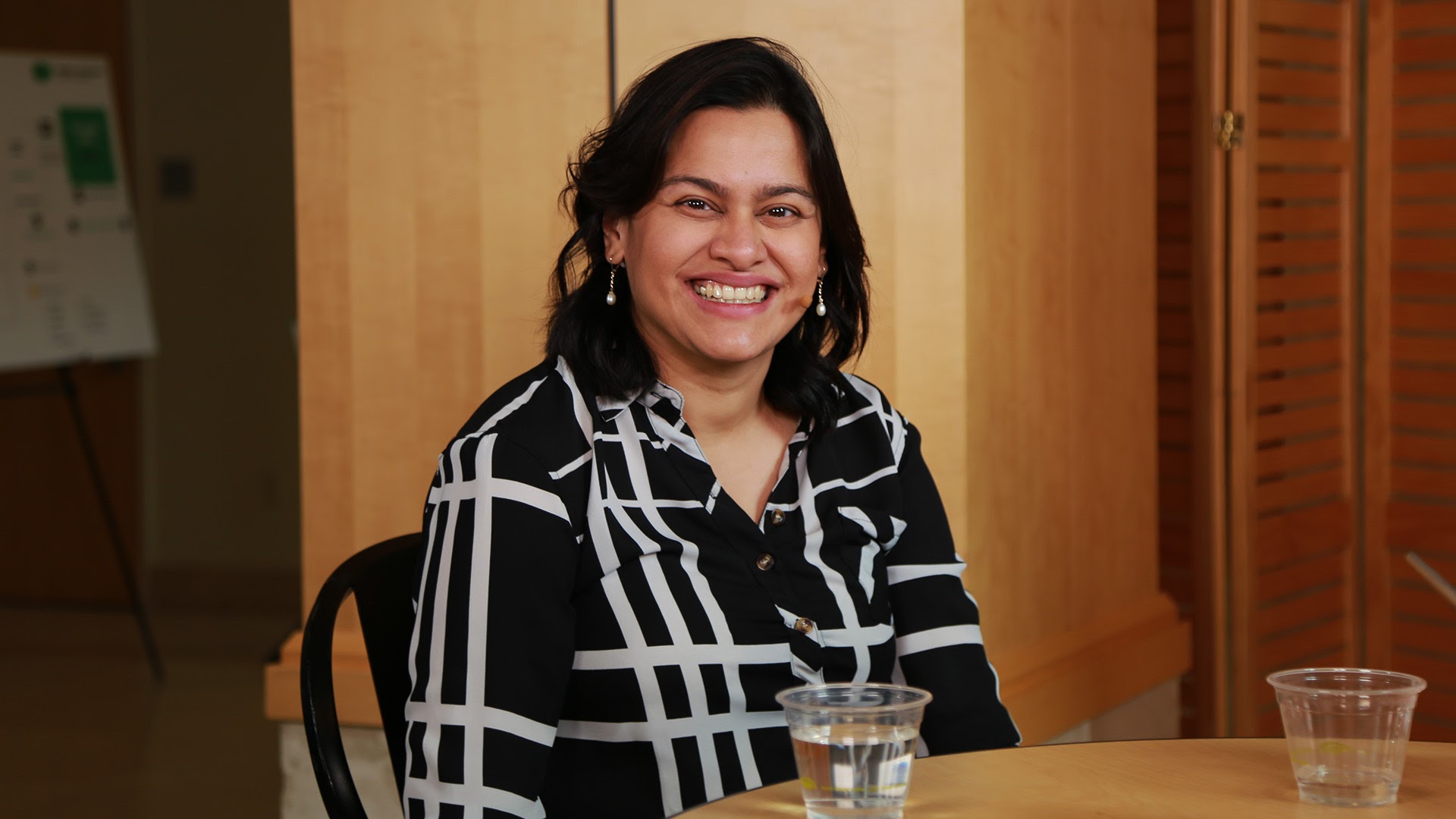 WOMEN IN TECH
WOMEN IN TECH
 WOMEN IN TECH
WOMEN IN TECH
 WOMEN IN TECH
WOMEN IN TECH
As organizations shine a spotlight on diversity initiatives to enhance innovation, improve decision-making, have a better understanding of customers and increase profits, many tech companies are leading the charge.
Meta Platforms Inc., formerly Facebook, has its own Engagement Ecosystem team that ensures data is used responsibly while giving everyone an equal voice, according to Gayatree Ganu (pictured), vice president of data science at Meta, who leads the initiative.
“How do we responsibly use this data? How do we use this data to make sure that we’re representing all diversity … minorities?” she asked. “Machine learning algorithms don’t do well with small data; they do well with big data. But the small data matters. How do you bring that into algorithms? Everything we do at Meta is very, very data-driven.”
Ganu spoke with theCUBE industry analyst Lisa Martin and guest host Hannah Freitag at the Women in Data Science (WiDS) event, during an exclusive broadcast on theCUBE, SiliconANGLE Media’s livestreaming studio. They discussed Meta’s Engagement Ecosystem team, the importance of data science, how diversity benefits data science and how data science can be used beyond the tech industry.
The Engagement Ecosystem team at Meta looks at trends, determines where there are needs and how users are changing their behaviors. The team then helps build strategies for the long-term using this data knowledge. The apex goal is to have a sustainable and profitable business, but the company’s mission goes far beyond mere profitability, with a clear connection between the engagement world and the monetization world, according to Ganu.
“It’s about building a meaningful connection between businesses, customers, users, especially in these last two or three funky, post-pandemic years,” she said. “It’s been such a big, an important thing to do for small businesses all around the world for users to find goods and services and products that they care about and that they can connect to.”
Data science is an emerging field, an industry that wasn’t even defined 15 years ago. As Meta is an extremely data-driven company, with over 200 million businesses utilizing the platform, the company must ensure productive use of its data, according to Ganu. Machine learning algorithms don’t work well with small data sets, including information about minority demographics, and bringing in diverse work talent enables the company to efficiently utilize data that otherwise would have been overlooked.
“The job as a data scientist at Facebook is to make sure that we use this data, use this responsibly, make sure that we represent every aspect of the 3 billion users who come to our platform,” Ganu said. “Data serves all of the products that we build here.”
The chief technology officer of ChatGPT, an artificial intelligence-based chatbot that’s gained immense popularity in the preceding months, is a woman. Having a woman as a CTO is even rarer than female CEOs are, as the technology industry hasn’t always been very accepting of female talent, according to Ganu. The interest women are currently showing in STEM-based careers has risen, however.
“I lead recruiting at Meta, and we’ve done a lot to open up the thinking around data science and technical jobs for women — simple things like what you write in your job description,” Ganu stated. “Facebook has always been up there in speaking out for diversity. Sheryl Sandberg has been our chief business officer for a very long time, and she’s been amazing at pushing for more women.”
Data science has a large spread of different utilizations, beyond just application data and analysis. With data science, global crises such as climate change can be better understood, Ganu pointed out. The industry has a large focus on using automation, such as machine learning and artificial intelligence, to analyze data sets otherwise too large for humans to take on, showcasing trends and environmental behavior changes that may have never been spotted without the technology.
“There are always going to be doubters and naysayers, but there’s hard evidence and there’s hard data,” Ganu said. “The data science that we have done in the environmental and climate change areas, and even medical professions can utilize data science. There is just so much more opportunity, and it reveals how much we can learn more about the world.”
Here’s the complete video interview, part of SiliconANGLE’s and theCUBE’s coverage of the Women in Data Science (WiDS) event:
THANK YOU